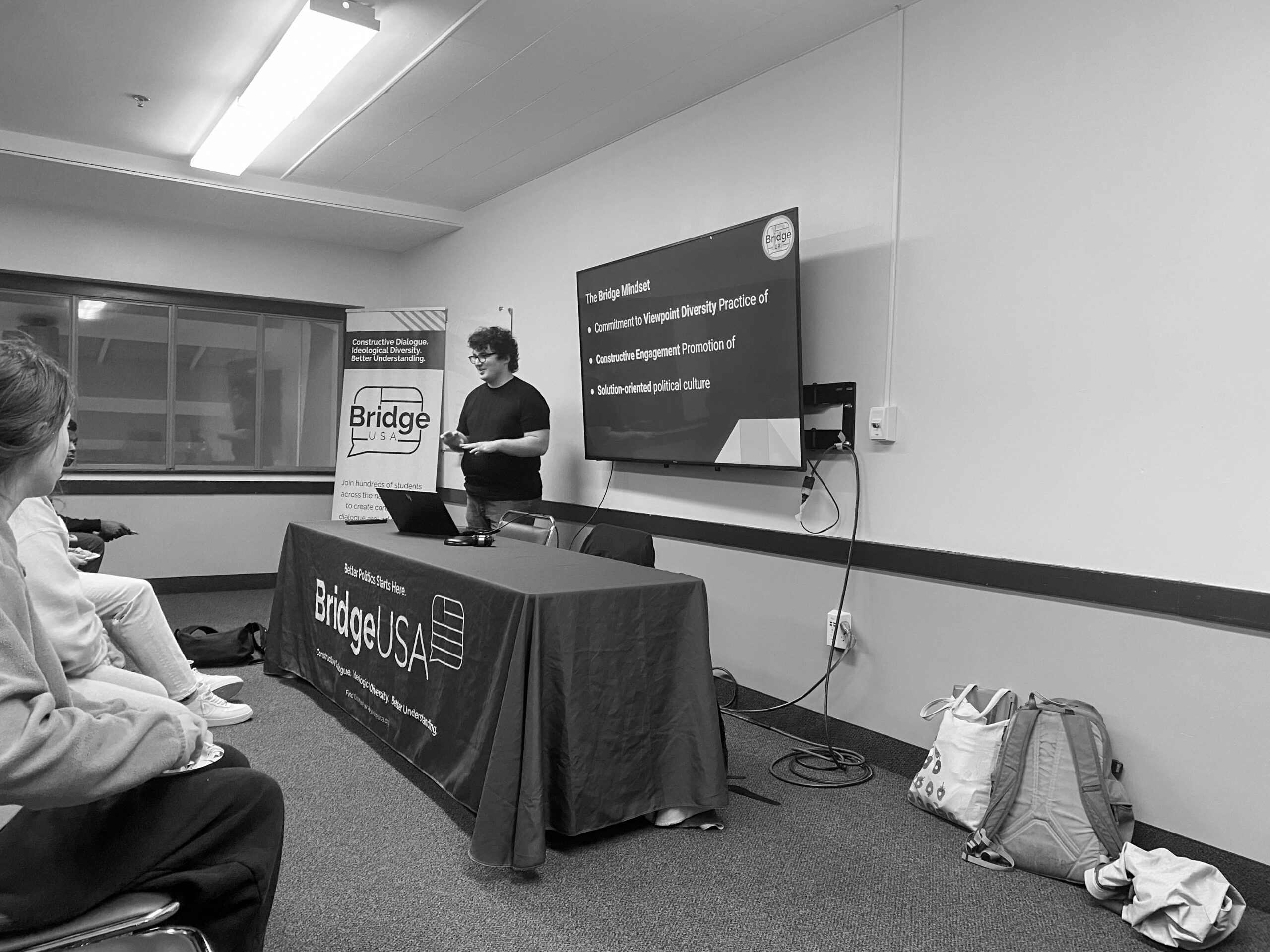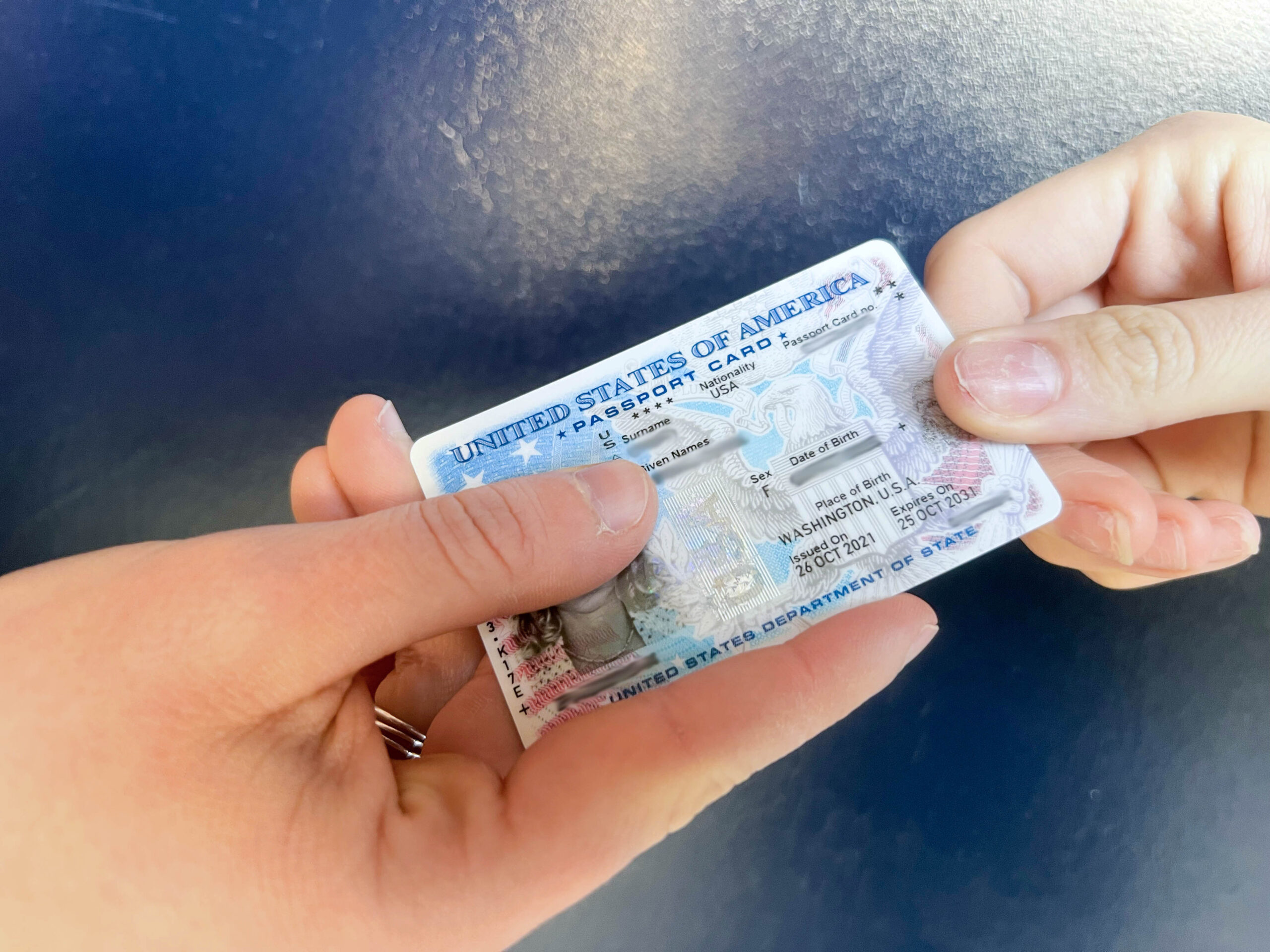Brendan Skip Mark, an assistant professor of political science at the University of Rhode Island, discussed the global issues surrounding rights for refugees and expanded on ways to decode them in an event on Sept. 25.
The talk, Global Leaders in Refugee Rights, took place at 7:30 p.m. in Edwards Auditorium. At the event, Mark expanded on the work he is doing with URI students, including fourth-year Zahra Khan, who worked as a human rights research assistant to find ways to better understand human rights issues surrounding refugees.
As co-director of CIRIGHTS , the world’s largest human rights data set, Mark’s work involves a system where countries are scored on how well they implement human rights into the framework of their nation.
The U.S. ranks 59th out of 195 countries, according to the 2023 GRIP annual report .
The CIRIGHTS data set builds upon the research conducted for the Cingranelli-Richards Human Rights Data Project, which collected data on human rights from 1981-2011, according to CIRI Human Rights Data Project .
This data set is conducted through the Global RIghts Project GRIP, according to Mark.
The United States was given a GRIP score of 64, or a letter grade of D, according to the 2023 GRIP annual report .
“Zahra and I are really interested in understanding the things that could change policy and lead to a world where we support refugees,” Mark said.
In addition to Mark and some of his students, t he World Affairs Council of Rhode Island was present at the event with 22 members attending.
Over the past 18 months, the World Affairs Council of Rhode Island and URI have collaborated on several of the U.S. Department of State’s International Visitor Leadership Program projects, including groups focused on human rights, according to Dan Medeiros, the president of WACRI.
The council’s goal is to promote public education in the field of international relations and American foreign policy, Medeiros said. This is done through the hosting of monthly events featuring expert speakers on topics within that purview.
The council has been working toward this goal through their collaboration with URI.
The university’s work is of great relevance in our world today, according to Medeiros.
“Refugee rights are entirely relevant to current events in the world and of utmost importance to us all right now,” Medeiros said. “The number of refugees in the world increases daily and will continue to increase with the political unrest and conflict the world now faces.”
To better understand the impact of this conflict, URI students over the past year have worked to specifically develop CIRIGHTS scoring guidelines in regards to refugee rights, Mark said.
The scoring system first involves studying the human rights that countries are charged with providing to refugees under international law, according to the U.S. Department of State country reports on human rights practices .
These reports are then studied by CIRIGHTS and compared with what is actually being done in each country, Mark said. The GRIP annual report then analyzes CIRIGHTS data to give each country their score.
Khan and Caleb Hines ‘24 spent about a year developing scoring guidelines through the use of research from political science to try and figure out what can and can’t be measured, Mark said.
Mark and the students included multiple measures to study international standards from the 1951 Refugee Convention in Geneva, Switzerland, Khan said. These measures include respect for basic civil rights for refugees and physical integrity rights.
The results of the research found poorer countries to be more likely to treat refugees better than wealthier countries, which is a big problem, according to Mark.
“We note a downward trend in human rights respect over the last few years in the U.S., as well as the need for more data on U.S. human rights practices,” the 2023 GRIP annual report said.
With an influx of more refugees, there is an urgent demand for action, according to Khan.
“There’s definitely a continued need for advocacy to improve the conditions of refugees,” Khan said. “Stronger laws are definitely necessary in order to safeguard refugees.”
The countries that are best able to help, but are resistant to do so, include Iceland, Denmark and the United Kingdom, according to Mark.
The U.S. could be doing much more as well, based on its GRIP score of 59, Mark said. This ideology has formed a cycle of conflict, repression and refugee suffering.
“Public opinion of refugees is really important,” Mark said. “When people see refugees as similar to themselves, they’re more willing to push their governments to help.”
The full CIRIGHTS report on global refugee rights can be found at 2023GRIPannualreport .



